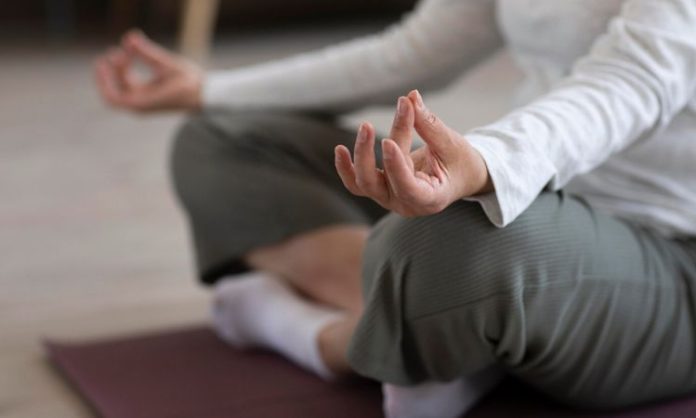The Benefits of Meditation for Mental Health
Life moves fast. The pressure to stay on top of everything—work, family, relationships, deadlines – can leave you feeling stretched thin. It’s not always obvious when stress starts to affect your mental health, but the signs show up in small ways. Trouble sleeping. Snapping at people. Feeling low for no clear reason.
In the middle of all this, meditation can be one of the easiest ways to reset. You don’t need a special place, expensive equipment, or hours of free time. Just a few minutes of quiet can help clear your head.
And no, you don’t have to sit cross-legged in total silence. Meditation comes in many forms. What matters most is consistency and the willingness to show up for yourself, even for a short while each day.
Why Meditation Works
It might seem too simple to make a difference – just sitting and breathing – but research suggests otherwise. Regular meditation is linked to lower stress levels, reduced anxiety, and better emotional balance. It also helps lower cortisol, the hormone your body produces when you’re under pressure.
One of the reasons it’s effective is that it encourages presence. When your mind is racing or spiralling, meditation gently guides you back to the now. It builds awareness. And when you become more aware of your thoughts and feelings, you’re in a better position to respond instead of react.
Some people also notice that their sleep improves. Others say it helps with focus or gives them a sense of calm during tough moments. These aren’t instant changes. But over time, they build up. Even five to ten minutes a day can have a real impact.
How Meditation Supports Therapy
If you’re already seeing a therapist, adding meditation to your routine can help you get more out of your sessions. It’s not meant to replace professional support but to work alongside it. A lot of psychologists now encourage mindfulness as a simple, accessible mental health tool.
When you practise meditation regularly, you tend to be more tuned into your emotions. That means during therapy, you may be able to express your thoughts more clearly or reflect on experiences in a deeper way.
If you’re still looking for someone to talk to, it’s worth connecting with a Psychologist for your needs. Whether you’re dealing with stress, anxiety, past trauma, or just feeling stuck, therapy combined with meditation can be a strong foundation for mental wellbeing.
Making Time For Meditation In Daily Life
Life isn’t slowing down anytime soon. Between work, social commitments, and everyday demands, carving out a few moments for yourself can feel nearly impossible. But that’s exactly why meditation can be so helpful – it’s one of the few things that actually creates space in your day.
And it doesn’t need to be complicated. Here are a few simple ways to start:
1. Mindful breathing
Sit somewhere quiet, or even at your desk. Close your eyes if it feels comfortable. Inhale deeply. Exhale slowly. Focus just on your breath. Do this for two or three minutes.
2. Body scan
Lie down or sit comfortably. Starting from your head, slowly shift your attention down through your body. Notice any tightness, warmth, or tension without trying to change it.
3. Walking awareness
The next time you’re walking – whether that’s to your car, around the block, or through the supermarket, try to pay attention to your footsteps, the feel of the ground, the rhythm of your movement.
You don’t need to sit in silence for an hour. These short, grounded moments add up.
Meditation and The Workplace
Work is one of the biggest sources of stress for many people. Long hours, tight deadlines, and constant digital connection can all take a toll. That’s why more workplaces are bringing in mental health support through workplace psychologists, group sessions, or even mindfulness programs.
If your workplace offers access to a mental health workshop, it’s worth checking out. These sessions often include practical tools to manage stress, set boundaries, and improve focus. Meditation is usually part of the mix.
Even if your job doesn’t provide these resources, there are still ways to work mindfulness into your workday. Take a few slow breaths before replying to emails. Pause for one minute before a big meeting. These tiny habits can help reduce burnout over time.
Finding Support and Resources
If you’re new to meditation or struggling to stick with it, you’re not alone. It’s easy to get frustrated when your mind won’t settle, but that’s totally normal. Meditation isn’t about stopping thoughts, it’s about noticing them and gently coming back to the present.
There are plenty of resources available to help. Many local communities offer free or low-cost meditation classes through neighbourhood houses, libraries, or wellness centres. Look out for a mental health workshop in your area that focuses on mindfulness or stress relief.
If in-person options don’t suit you, there are also great mobile apps like Smiling Mind, Insight Timer, or Headspace. They offer guided meditations for different needs, stress, focus, sleep, anxiety, and you can do them whenever it works for you.
Start Small and Go Easy on Yourself
Meditation isn’t about doing it perfectly. It’s about creating space in your day for stillness. For quiet. For checking in with yourself.
You don’t have to commit to a long practice right away. Start with a couple of minutes. Build from there. Some days will feel better than others, and that’s fine.
If you’re already working with a therapist or trying to find the best Psychologist, meditation can be a simple but powerful tool to support that journey. Together, they can help you feel more balanced, more present, and more in control of how you handle life’s ups and downs.


